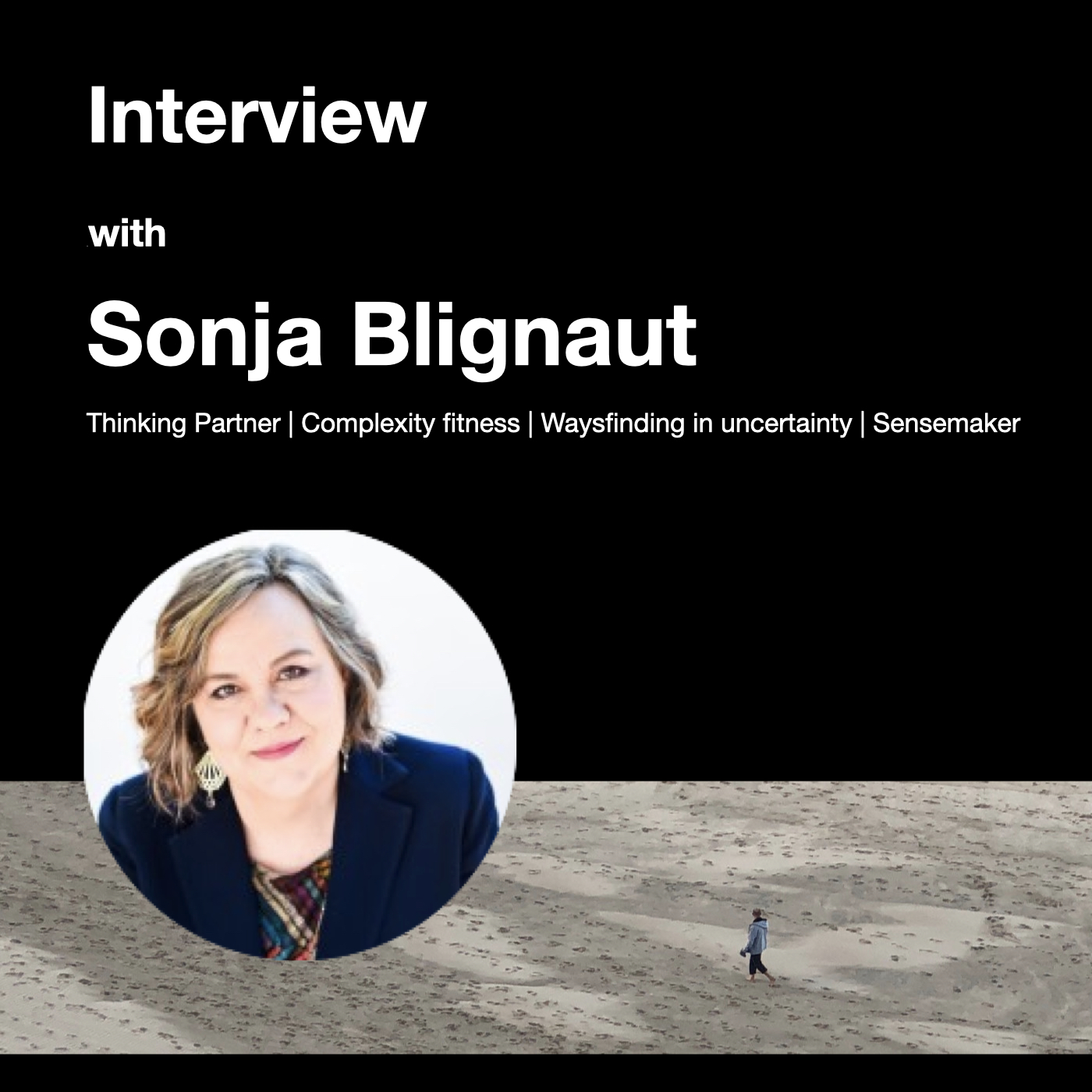12. Waysfinding, complexity and opening spaces


First a quick introduction: Sonja is the founder and CEO of More Beyond and she works with clients to create resilient and agile cultures and leadership. She works primarily with complex systems theory and has the gift of making it understandable and doable for all of us including in our daily lives.
You need to honor the context of every system that you enter, every system that you interact with.
We need people who are “complexity fit”, able to think beyond categories, think beyond linear ideas of cause and effect.
We’ve made complexity a “thing”, you know, once you name something, it becomes a thing.
We all interact with complexity. Some of us just make it explicit and others don’t.
We encounter complexity in our everyday lives in ways so familiar that we navigate it without conscious awareness. Driving through traffic to go shopping in a store is complex. Raising a family is complex.
People have a misunderstanding of the word. They either see complexity something that is very difficult, higher order complicatedness or as something you can’t manage, you can’t control, similar to chaos.
Complexity is not good or bad. It just is. It’s like change. It’s not good or bad. It just is. And you already know how to navigate it.
We’ve been accustomed to seeing organizations as wonderfully ordered and predictable spaces where we can have five-year plans and they’ll actually happen.
It’s time to let go of that and to see that organizations are similar to other complex contexts that you already know how to navigate. You need to bring those skills into the workplace.
How do I explain complicated and complex?
Today we are in uncharted territory. We’ve got climate change, a global pandemic, social unrest, all happening at the same time. The levels, of uncertainty and unpredictability are off the charts. We haven’t had to make decisions in these kinds of contexts before.
In complexity, there’s never just one way, and I think I made it WaysFinder, because if you use wayfinder you trigger that mindset again of “I just need to find the one right way”.
Sometimes we need little nudges, sometimes bigger ones. And sometimes little nudges make big changes.
People love to use the analogy in organizations of bringing about change: It’s a really big ship to turn. In the real world, what turns a big ship is a small little rudder. You only need a 2% shift in the small little rudder. And that’s the difference between ending up in South or North America potentially.
We don’t leverage this non-linearity that exists in complex systems, enough. you know, small, local changes, you know, safe to fail. I like to call them safe to try.
Many of these small little nudges, small little experiments can actually have system-wide ripple effects, whereas really big multi-million-dollar interventions can have zero impact.
Jane asked: “You said my book, The Gig Mindset Advantage, has provided a new framing and language to help you see that when you were lucky enough to encounter someone with influence as well as a gig mindset, real transformation followed. What do you mean?”
Sonja: “When people with a mandate, with some level of power and authority in an organization have this gig mindset, they can open a space for others.”
Those people are able to create adaptive space where you can create the conditions for more of this gig mindset to emerge.
First published August 28, 2021.
You can reach Sonja on LinkedIn
sonja@morebeyond.co.za
082 338 7495
Follow her on Twitter: @sonjabl
Nothing matches your request, please try again with a different search term.